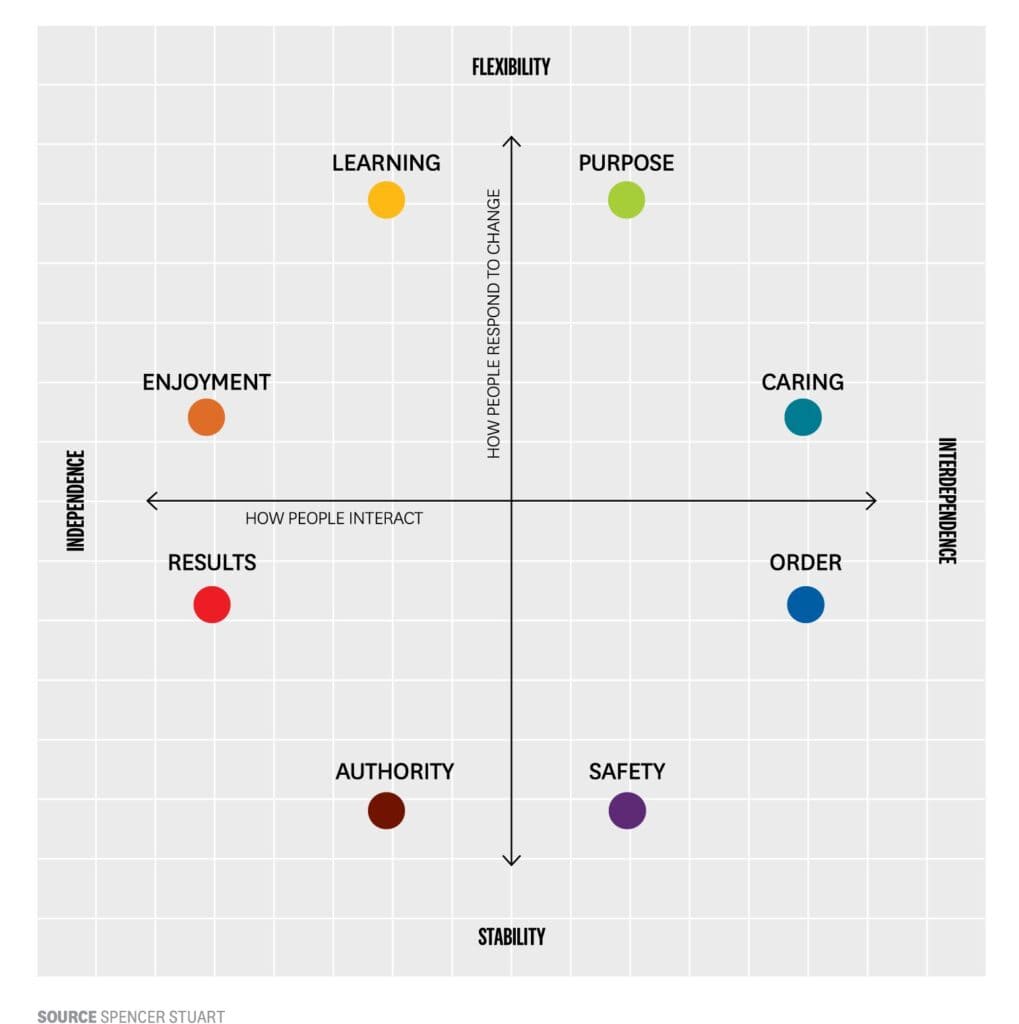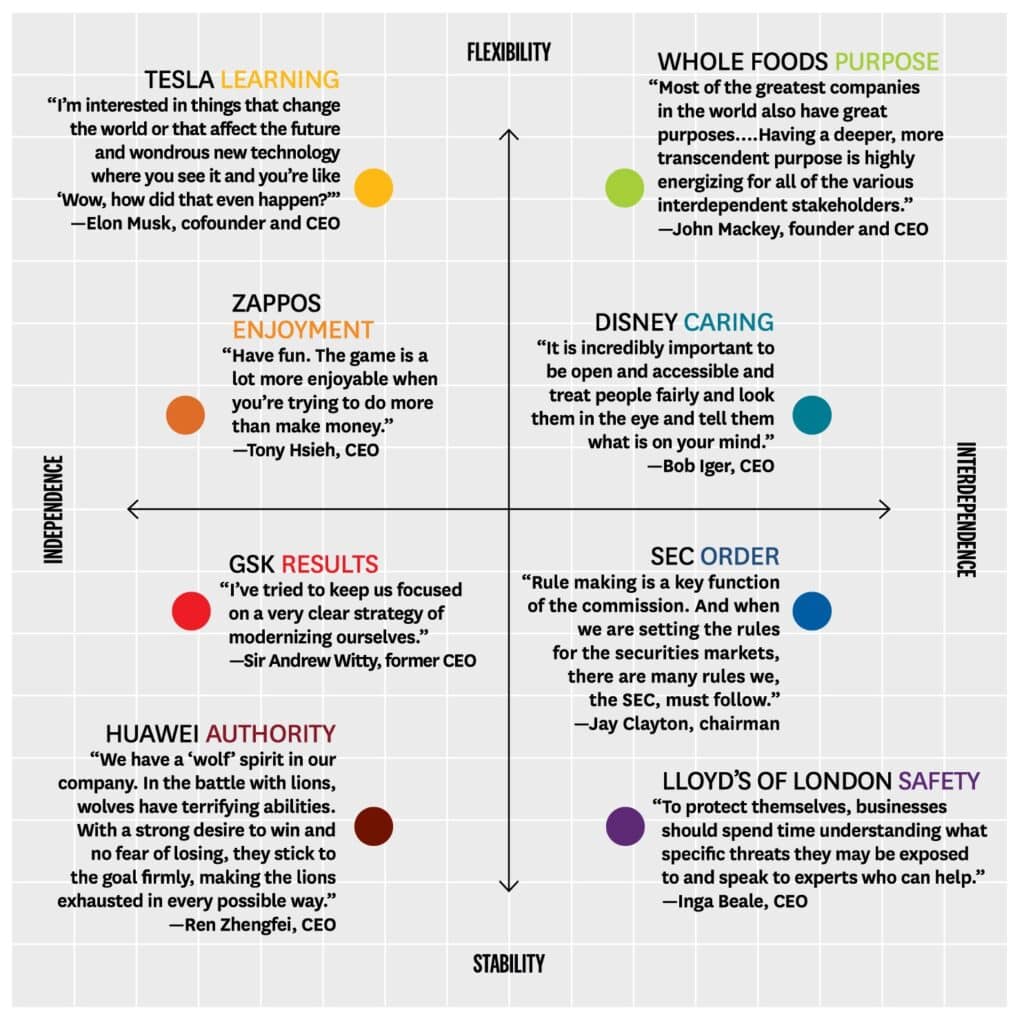At a Glance
- Learn about the different types of organizational culture.
- Discover how organizational culture impacts workplace communities and employee engagement.
- Understand the role of organizational culture in driving organizational performance.
- Find out which type of organizational culture fits your company best.
- Gain insights and practical tips to develop a positive and thriving work culture.
Understanding the different types of organizational culture is crucial for any company, as it directly impacts employee engagement, workplace communities, and ultimately, organizational performance. Even if we say that we don’t have time to create a healthy culture, that’s how you’re creating your culture; by default. So, let’s dive in and discover which type of organizational culture fits your company best!
What is Organizational Culture?
Before we explore the different types of organizational culture, let’s first define what it actually means. Organizational culture refers to the shared values, beliefs, and behaviors that shape the unique identity of a company. It encompasses everything from the company’s mission, vision and values to its work environment and employee interactions.
The Types of Organizational Culture
- Clan Culture: This type of culture emphasizes collaboration, teamwork, and a sense of family within the organization. Companies with a clan culture prioritize employee well-being and create a nurturing environment where everyone feels like they belong.
- Adhocracy Culture: Adhocracy culture is all about innovation, risk-taking, and adaptability. Organizations with this culture encourage employees to think outside the box, experiment with new ideas, and embrace change.
- Market Culture: In organizations with a market culture, competition and results are key. These companies are driven by achieving goals, meeting targets, and outperforming competitors. They value efficiency, productivity, and a strong focus on delivering results.
- Hierarchy Culture: Hierarchy culture is characterized by clear structures, rules, and processes. Companies with this type of culture have a well-defined chain of command and value stability, predictability, and adherence to established procedures.
In every organization, there exists a unique blend of these four distinct types of organizational culture, with one culture usually taking precedence. The reason is that each organization is uniquely shaped by its vision, mission, and leadership. As the size of the organization increases, the likelihood of having multiple cultures within it also grows. While this can be advantageous for the organization, it can also pose challenges when striving to establish a unified culture in a geographically dispersed and globally connected organization.
Characteristics of Culture
Groysberg, Lee, Price, and Cheng identified the following additional organizational cultures in their research published in Harvard Business Review (2018). After carefully analyzing organizations, executives, and employees for decades, they have created a robust and all-encompassing model to identify the essential qualities of both culture and individual leadership styles. Through this process, they have discovered eight distinct characteristics that emerge when mapping cultures along two dimensions: how people interact (independence to interdependence) and their response to change (flexibility to stability). While the relative importance of these eight styles may vary across organizations, almost all of them are marked by a strong emphasis on “results” and “caring”.

Leaders and founders frequently convey their cultural beliefs in the public sphere, whether consciously or unconsciously. These statements offer valuable insights into their perspectives on organizational culture and their approach to leadership. Examples:

Finding the Right Fit for Your Company
To determine the most suitable culture for your organization, carefully consider your organizational goals, your team’s working styles, and the changes your business is currently undergoing. In today’s labor market, regardless of the culture you opt for, it is imperative for organizations to prioritize providing a positive employee experience and embracing agility in order to thrive.
Here are some key factors to consider:
- Company Values: Reflect on your company’s core values and identify the type of culture that aligns with them. For example, if collaboration and teamwork are highly valued, a clan culture might be the right fit.
- Industry and Goals: Consider the nature of your industry and the goals you want to achieve. If you operate in a fast-paced, innovative industry, an adhocracy culture might be more suitable.
- Employee Preferences: Take into account the preferences and needs of your employees. Conduct surveys or hold discussions to gauge their opinions on the existing culture and identify areas for improvement.
- Organizational Development: Keep in mind that organizational culture is not static. It evolves over time, and as your company grows, you may need to adapt and refine your culture to meet new challenges and opportunities.
Conclusion
In conclusion, understanding the different types of organizational culture is essential for any company looking to create a thriving workplace environment. There is no one-size-fits-all approach when it comes to organizational culture. Each company is unique, and finding the right fit requires careful consideration and continuous evaluation. By identifying the type of culture that aligns with your company’s mission, vision and values, and employee preferences, you can foster a positive work culture that drives employee engagement and enhances organizational performance.
How does your current organizational culture align with your company’s values and goals?
Are there any specific changes or improvements you should consider to enhance your organizational culture?
What steps can you take to sustain and reinforce the desired organizational culture in the long term?
Start developing your leadership skills today with The Effective Leader or sign up today for the Effective Leadership email newsletter.
Contact me today for a complementary Strategy Session: Leadership Strategy Session
Or book me to speak at your next Event, Team Meeting, or Off-Site Retreat: Speaker Request

